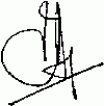Since the Neolithic Revolution, growing human populations have developed a variety of strategies to intensify agriculture. During 10 000 years of intensification, humans have introduced different technological adaptations of basic natural resources in order to sustain growth in agricultural production. Societies have in fact defined themselves by the way and degree in which they have succeeded in increasing agricultural production. While intensification has made it possible to support a world of 6 000 million people, it can result in degradation of the earth’s natural resource base. This paper provides a definition of intensification that allows for more open and informed dialogue on the ethical dimensions of sustainable agricultural intensification.
At the World Food Summit in 1996, countries committed themselves to halve the number of hungry in the world by no later than 2015. This goal was reaffirmed in the United Nations Millennium Declaration in 2000 and, in 2002, it was reiterated by the World Food Summit: five years later.
The commitment made is profoundly ethical, and a related moral imperative is to seek sustainable agricultural intensification in ways that do not degrade the natural resource base, while also taking into account the need to improve the livelihoods of the millions of people who work the land, particularly in developing countries.
We have the skills to make the policy and technological choices to achieve the sustainable intensification that will be required over the next century, as the world’s population size stabilizes. Nevertheless, these choices are difficult. Governments and their policy planners, as well as producers and consumers, must grapple with the ethical dimensions of intensification. How are we to identify and choose among the alternative paths forward to avoid many of the negative effects associated with intensification?
In addition to the risk of degrading natural resources, intensification has important socio-economic consequences, particularly in relation to rural livelihoods. In making the relevant policy decisions, planners must identify and evaluate alternative strategies, in terms both of their immediate and longer-term impacts and of their implications for the societies and communities involved. Actors at the grassroots level deserve a framework enabling them to take decisions and action that contribute to the common good. We must honour our commitment to provide viable production alternatives before we accuse poor households of damaging the environment in pursuit of mere subsistence. As Mahatma Gandhi said, “To the millions who have to go without two meals in a day...God can only appear as bread”.
The ethics of sustainable agricultural intensification is the third study in the FAO Ethics Series. It explores a systematic approach to practical ethical analysis applied to intensification, and aims at integrating ethical principles into the basket of policy tools adopted by planners working to achieve the World Food Summit goal. Human food needs provide the basis for a utilitarian argument for intensification, while the moral concept of virtue addresses people’s duty to work for the good of society. A rights-based analysis then reveals how individuals’ pursuit of such good can be constrained by the rights of others. These three approaches can help us articulate, debate and ultimately assume ethical responsibilities concerning the intensification of agriculture.
FAO intends to continue advancing the dialogue on the ethics of food and agriculture, as it forms an ineluctable part of humanity’s core commitment to feeding the world. ·

Jacques
Diouf
FAO Director-General